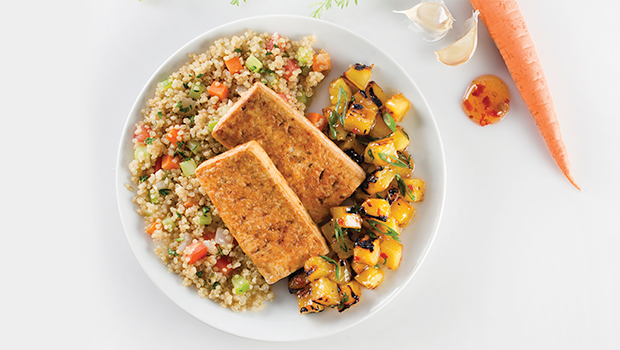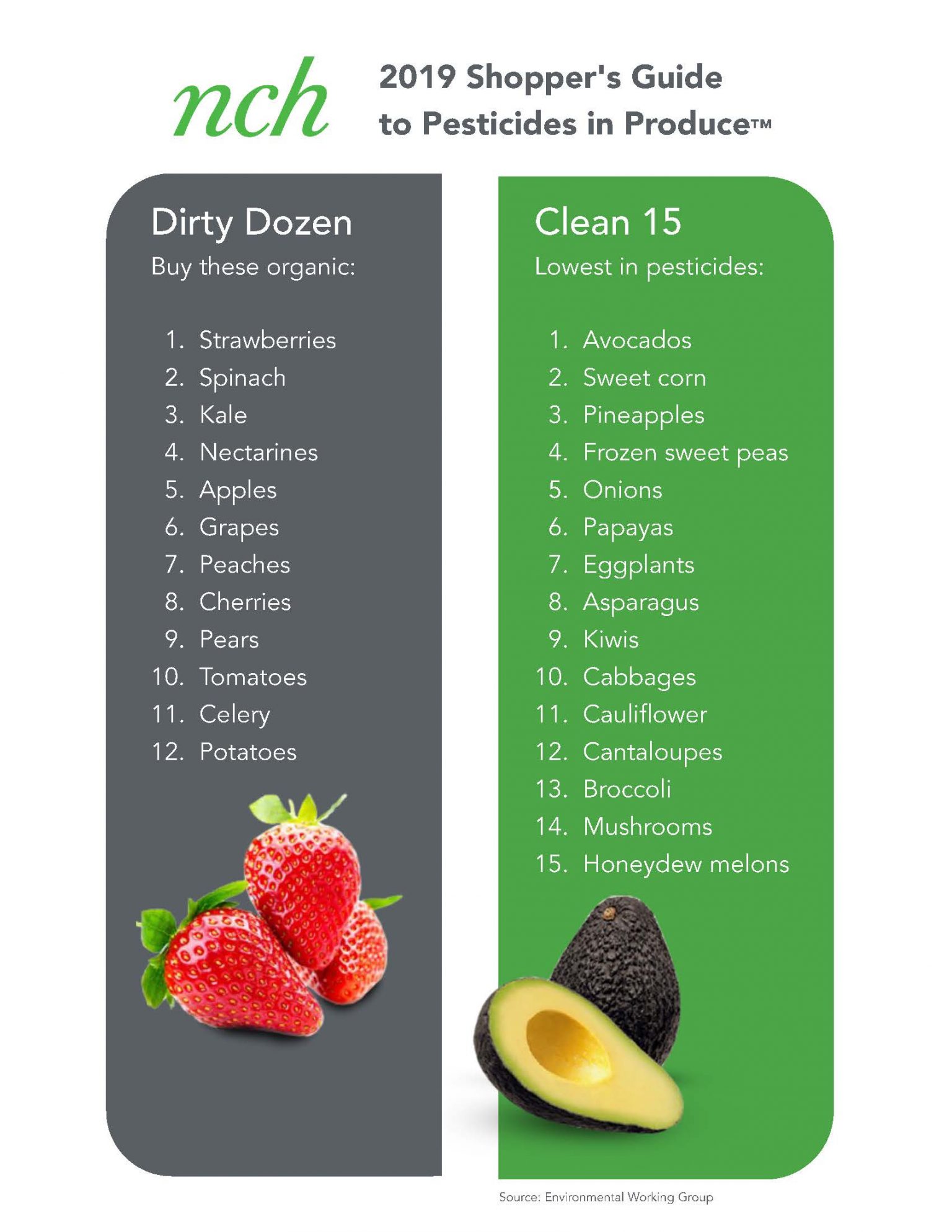What’s the ‘Dirty Dozen?’
April 12, 2019
How to select and clean fruits and veggies this season

Rosemary Weaver, MPH, RDN, LDN, Clinical Dietitian at the NCH Wellness Center
It’s spring, when our thoughts and palates turn to the delightfully widening variety of fresh fruits and vegetables readily available and seasonally affordable. But do you need to buy organic, and what defines organic produce anyway?
Organic refers to the way a food is grown, handled and processed. To have the USDA’s organic seal, produce must be grown without the use of most conventional pesticides, fertilizers that aren’t naturally made, sewage sludge, radiation and genetically modified organisms. Organic fruits and veggies aren’t necessarily pesticide-free. Dedicated organic farmers don’t use synthetic fertilizers or pesticides. However, they can apply ones made from natural ingredients, which can still pose some possible health risks.
Do you need to buy organic?
A Los Angeles Times article references a recent medical study that followed 70,000 adults, most of them women, for five years. It reported that the most frequent consumers of organic food had 25 percent fewer cancers overall than those who never ate organic. (The study did not prove organic foods directly caused cancer risk to drop.) There is a growing body of evidence that shows some potential health benefits of organic foods when compared with conventionally grown foods. But there is limited information to draw conclusions about how these differences translate into overall health benefits.
Guidelines for savvy produce selection
- Eat a variety of foods from a variety of sources. This will give you a better mix of nutrients and reduce your likelihood of exposure to a single pesticide/herbicide.
- Buy fruits and vegetables in season, when possible. To get the freshest produce, select what is in season or buy food from your local farmers market. It’s good to buy local strawberries, kale, spinach, apples, peaches, nectarines and potatoes.
- Wash and scrub fresh fruits and vegetables thoroughly under running water. Washing helps remove dirt, bacteria and traces of chemicals from the surface of fruits and vegetables, but not all pesticide residues can be removed by washing. Discarding outer leaves of leafy vegetables can reduce contaminants. Peeling fruits and vegetables can remove contaminants, but may slightly reduce nutrients.
Lower your cancer risk
To lower your overall cancer risk, the American Cancer Society recommends consuming a healthy diet with lots of fruits and vegetables, whole grains instead of refined grains and limited amounts of red meat, processed meat and added sugars.
If you’re concerned about getting the least amount of pesticide residues, consider buying organic from the EWA’s* “Dirty Dozen” produce list below. Remember to wash all produce thoroughly before eating, and aim for at least seven vegetable and fruit servings per day. A serving is approximately ½ cup cooked or 1 cup fresh fruits or vegetables.

The Clean 15
Certain fruits and vegetables have lower pesticide residues. More than 70 percent of the “Clean 15” as they are called, did not have pesticide residues. Avocadoes and sweet corn show the lowest amount of overall residues. Thick-skinned fruits and vegetables that need to be peeled tend to have lower detectable residues.
Bottom line
Don’t stop eating fruits and vegetables if you can’t afford more expensive organically grown options. Make fruits and veggies – along with whole grains and legumes – the central part of your diet, regardless of whether they are grown conventionally or organically.
Try this healthy Teriyaki Tofu, Quinoa and Pineapple recipe, perfect for spring.
*The Environmental Working Group (EWG) is a non-profit, U.S. activist group specializing in research and advocacy in the areas of agricultural subsidies, toxic chemicals, drinking water pollutants and corporate accountability.